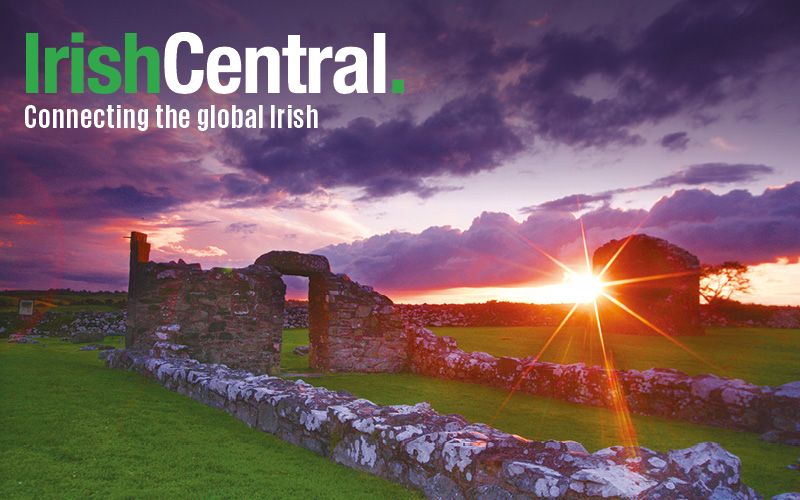The Little Green Book of Irish Wisdom
By Dermot McEvoy
Some people are walking Irish Doomsday books, and we’re much the richer for them. James Joyce was one -- actually James Joyce was the greatest one, as he never tired of reminding his many friends and admirers.
Theoretically it would be possible to reconstruct Ireland and the Irish from the genius of Joyce’s output but in The Little Green Book of Irish Wisdom writer and journalist Dermot McEvoy gives him a run for his money.
Curating much of what was best written and said about Ireland and the Irish since the time of St. Patrick, McEvoy evinces a droll sense of humor and a deep awareness of the often conflicting currents of Irish history.
Contemplating the national character as much as the long struggle for independence, McEvoy’s wide ranging collection takes in the great themes: politics, poetry, men and women, drink and death.
Sometimes the quotes he assembles are shocking in their simplicity and rightness, such as this one from Brendan Behan: “The most important things to do in the world are to get something to eat, something to drink and somebody to love you.”
Pragmatism and poetry co-exist together in Ireland in a way that is unlike any other nation on Earth, and McEvoy underlines this notion over and over. Partly it’s the result of being forced to translate Irish the national language into English, also the national language. Thinking in one tends to reorient the other in surprising ways.
“Writing in English is the most ingenious torture ever devised for sins committed in previous lives,” says Joyce in a quote that McEvoy picks out. He quotes Irish American novelist Rosemary Mahoney who tells him: “There was a time when the Irish were forbidden to speak their own language, forbidden to practice their religion, so the only thing left to them was to adopt the language of their oppressor. As you know they more than succeeded in that.”
In The Little Green Book of Irish Wisdom, McEvoy reminds us exactly how they did.
Skyhorse, $16.95.
Walking In Ireland: 50 Walks Through the Heart and Soul of Ireland
By Christopher Somerville
To truly know and people and a nation you’ll have to walk a mile or more in their shoes. In Ireland this is especially true, because the nation only reveals itself to the most patient seeker, and then only when you least expect it, usually on a country walk or, as Seamus Heaney suggested, along a coast road with the light and the water working off each other.
For years Christopher Somerville’s popular Walk of the Week column in the Irish Independent has been advising the Irish and visitors to the nation where to find the most spectacular scenery and the most enjoyable excursions.
From the majestic mountains of Co. Sligo to the city and environs of Dublin, he has crafted a superbly illustrated and researched walking guide presenting 50 of the most enjoyable walks in Ireland.
From the culture and topography of the landscape to the unique history, flora and fauna that you’ll see along the way, Somerville has crafted a guide that you take with you or enjoy in an armchair as you plan your own way.
Anyone who ardently loves the Irish landscape – and that’s most of us – will find inspiration here. Somerville will tell you where to find Famine pots in the midlands to golden eagles in Donegal, in an invaluable guide book that would be appreciated by any nature lover.
Ebury Press, $24.95.
1916: What the People Saw
By Mick O’Farrell
We’re already familiar with the heroes and villains of 1916, but it is instructive to read of the views of local Dubliners themselves, caught up in a maelstrom that many did not support until the British started sending the leaders to the firing squads.
For most people who lived through it, it was one of the most momentous experiences of their lives. In the eye witness accounts that O’Farrell has collected here letters, diaries and biographies provide a lively, chilling and sometimes unexpectedly hilarious account of the transformational act that led to the foundation of the Republic.
Dufour, $26.95.




Comments